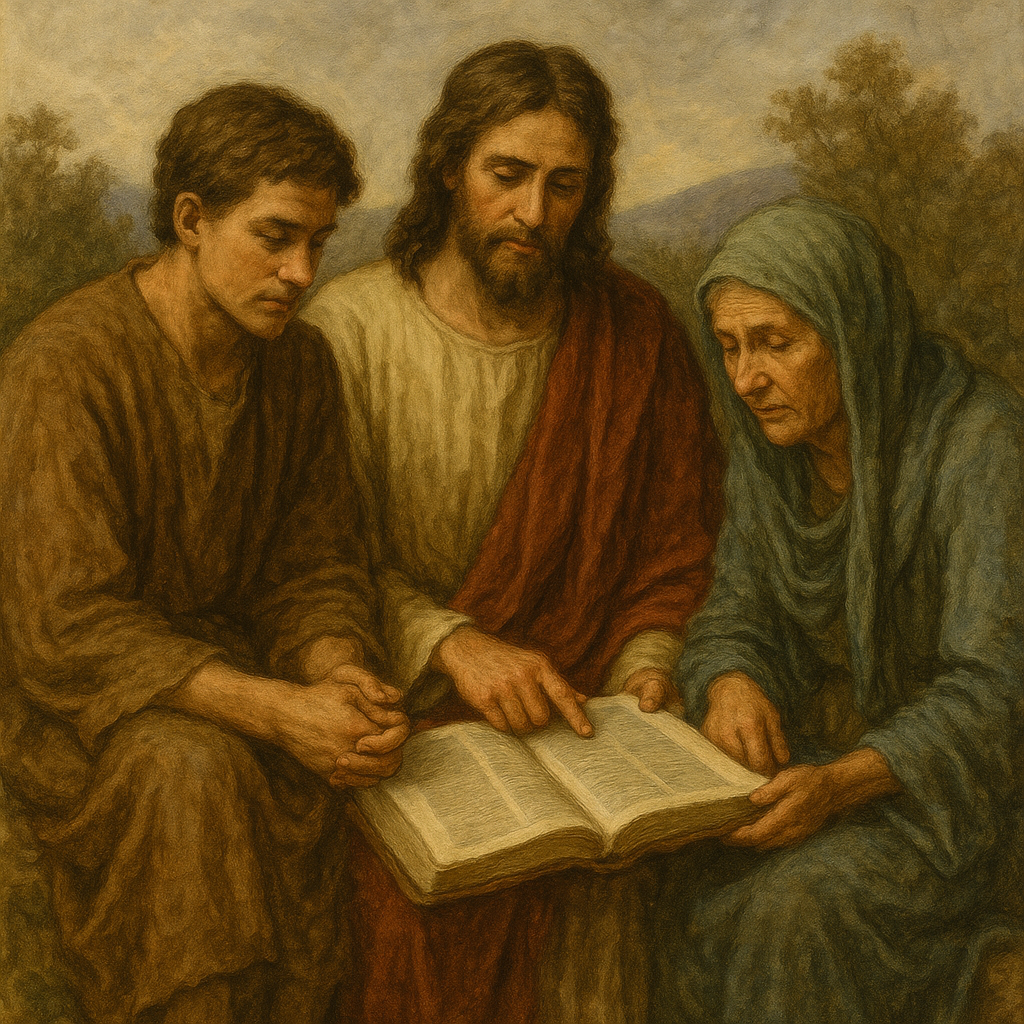The terms disciple and apostle are often used interchangeably.
However, this is not accurate.
Scripture makes a clear distinction between the two, and Bible dictionaries also differentiate between a disciple and an apostle.
In the Gospel of Luke, we read:
“And when it was day, he called unto him his disciples:
and of them he chose twelve, whom also he named apostles.”
(Luke 6:13, Luther 1545)
This shows very clearly that one must first be a disciple before becoming an apostle.
In addition to the twelve well-known disciples, Jesus sent out many more:
“After these things the Lord appointed other seventy also,
and sent them two and two before his face into every city and place, whither he himself would come.”
(Luke 10:1, Luther 1545)
So, what is the difference?
The biblical context leads us to a unified understanding:
An apostle is a disciple with a mission.
In the verses above, the disciples are given the Great Commission.
Anyone who listens to our Redeemer and follows Him is a disciple.
Once that disciple grows in knowledge and receives a specific task and fulfills it,
they become an apostle.
From this understanding, it’s also clear that apostleship is not bound to gender.
Junia and the female apostles
There was no debate about a female apostle named Junia until the 13th century.
It wasn’t until the Middle Ages that the name Junia was changed to Junias—
thus turning a woman into a man.
Even if one were to argue about Junia,
there is no dispute regarding the first female apostle:
Mary.
We read in all four Gospels that Mary followed our Redeemer.
That alone affirms her discipleship.
In Mark, her commission from Jesus is only hinted at:
“Now when Jesus was risen early the first day of the week,
he appeared first to Mary Magdalene,
out of whom he had cast seven devils.
And she went and told them that had been with him,
as they mourned and wept.”
(Mark 16:9–10, Luther 1545)
But in John, we learn explicitly about the commission given to Mary:
“Jesus saith unto her, Mary.
She turned herself, and saith unto him, Rabboni; which is to say, Master.
Jesus saith unto her, Touch me not;
for I am not yet ascended to my Father:
but go to my brethren, and say unto them,
I ascend unto my Father, and your Father;
and to my God, and your God.
Mary Magdalene came and told the disciples that she had seen the Lord,
and that he had spoken these things unto her.”
(John 20:16–18, Luther 1545)
If Mary received a direct assignment from Jesus Christ,
then she is clearly a female apostle.
All can be disciples and apostles—
the difference lies in having a commission or not.
Paul as confirmation of this principle
This view is supported by the conversion of Paul the Apostle.
For those who read the Bible superficially, this may seem surprising.
At first, Paul persecuted and killed the followers of Jesus.
But Paul believed he was doing a service to the LORD.
As a devout Pharisee from the tribe of Benjamin,
and someone who loved the LORD with all his soul,
he was already a disciple—though one gone astray.
Paul became an apostle only after his experience on the road to Damascus.



